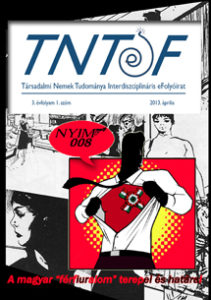Menstruating Fathers and Women of Cold War: Transgressive Masculinities in Danilo Kiš’s Works
Main Article Content
Abstract
The Serbian-Yugoslav-Jewish writer Danilo Kiš (1935-1989) is famous for his novels and short stories exploring the sufferings of victims of fascism and communism. Many of his writings are autobiographical and set at least in part in Hungary. His fictional world is polyphonic but employs mostly male protagonists, so there is ample material for the study of masculinity. In some of his works, such as the novella "Jurij Golec" and the poem "The Wedding Guests," he makes use of rather traditional conceptions of masculinity and femininity. Other works, such as the story "The Lute and the Scars," show a mixture of traditional and nontraditional conceptions, while the novel Hourglass, Kiš's masterpiece, is the best example of a nontraditional, transgressive portrayal of masculinity. Another bold departure from the traditional masculine domain is found in the last major creative work of Kis's career, a television documentary from 1989. In Bare Life, two Serbian Jewish women, now Israelis, tell their stories as victims, survivors, and accusers of the two infernal systems, Nazism and Communism, that Kiš spent his life equating. Ultimately the transgressive use of gender stereotypes seems to be just one of the many tools that Kiš uses to open the door to the exploration of the lethal otherness that left so many people condemned in the ideological dictatorships of the 20th century.

